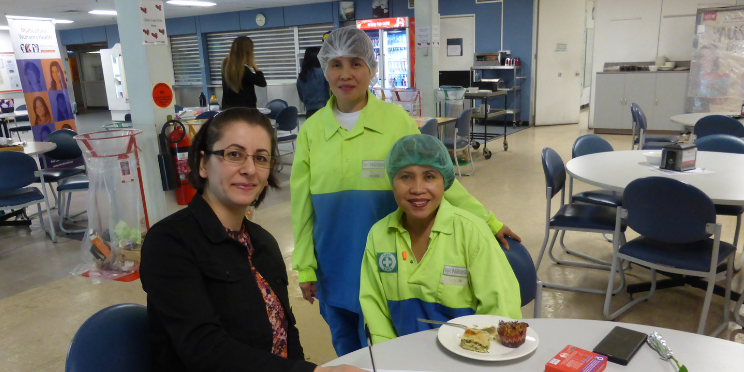
Now that Victoria has emerged from lockdown hibernation, many of us are hitting the shops and cafes with almost patriotic fervour. It’s tempting to think that this post lock-down, pre-holiday spending splurge will help Australia’s recovery. The virtuous thinking goes something like this: the retail and hospitality sectors have been hardest hit by the pandemic so if we’re spending, we are showing up for the economy. Win, win. Or is it?
The evidence shows that those hardest hit by the pandemic have not been small business retailers or hospitality owners, it has been women and migrant workers. Huge difference. As the pandemic clearly revealed, the difference being employees who are migrant workers are subject to discrimination, exploitation and systemic poverty. For example, despite representing only 7% of Australia’s workforce, hospitality claims the highest number of Fair Work Ombudsman disputes at 18%, with 33% of those claims representing migrant workers.
These entrenched power imbalances in the labour economy were also highlighted in the recent Migrant Workers Centre Conference. Policymakers, researchers and advocates provided the latest evidence about the inequities faced by workers subject to the visa system and amplified the voices of those who have been marginalised and excluded in our Land of the Fair Go. The messages from the many temporary visa holders who lost their jobs as the pandemic hit to the international students left out of government job subsidy schemes were clear and compelling.
As the recession deepens, the risk now is that many migrant workers will suffer from long-term employment and poverty and be pushed back into exploitative and underpaying jobs. The experiences of migrant workers should shape our approach to lifting ourselves out of not just a national, but a global recession.
The pandemic has shown that there can be no return to the ‘old normal’ and as with all emergencies, we are all implicated and responsible for creating a pathway out of this crisis. Fighting against unemployment, casualisation and underemployment go hand-in-hand with migration policy reforms. We need a worker-led recovery where every person is guaranteed social-safety, education and decent work regardless of any characteristic. Employment status or visa status should not divide us. Tax breaks can only get us so far, we need to show up for workers.
The WRAP is a monthly newsletter about migrant women’s issues. Subscribe to our mailing list here.
